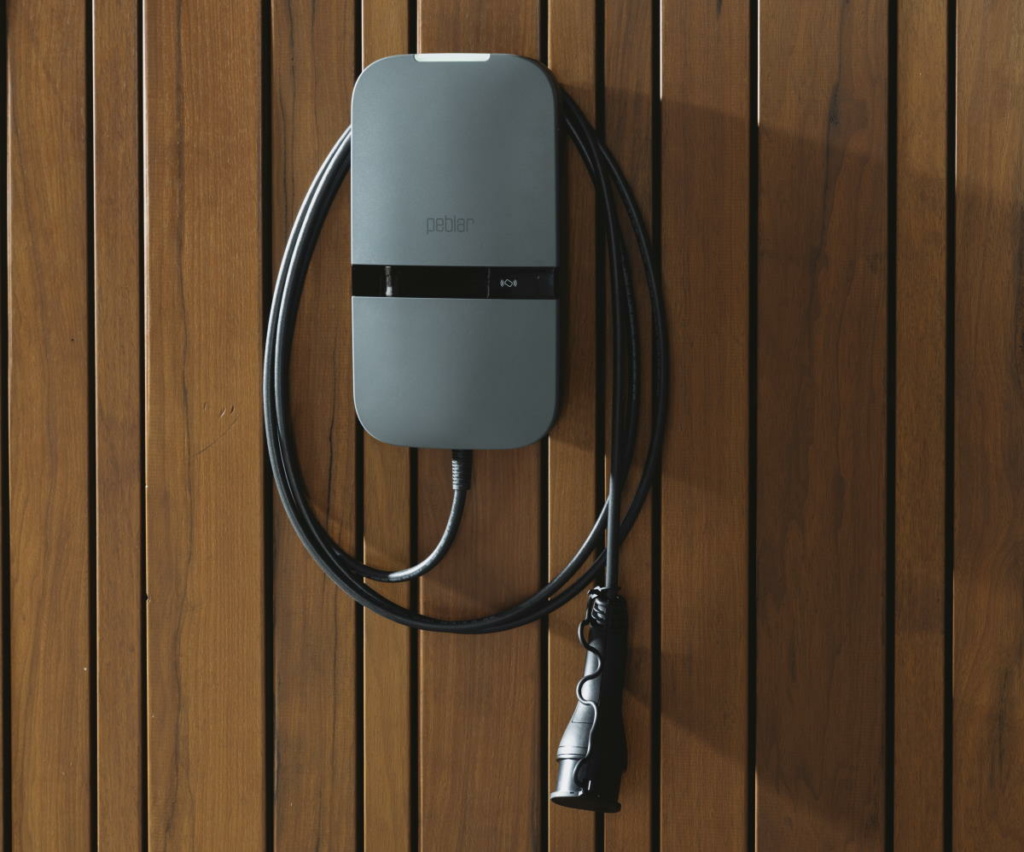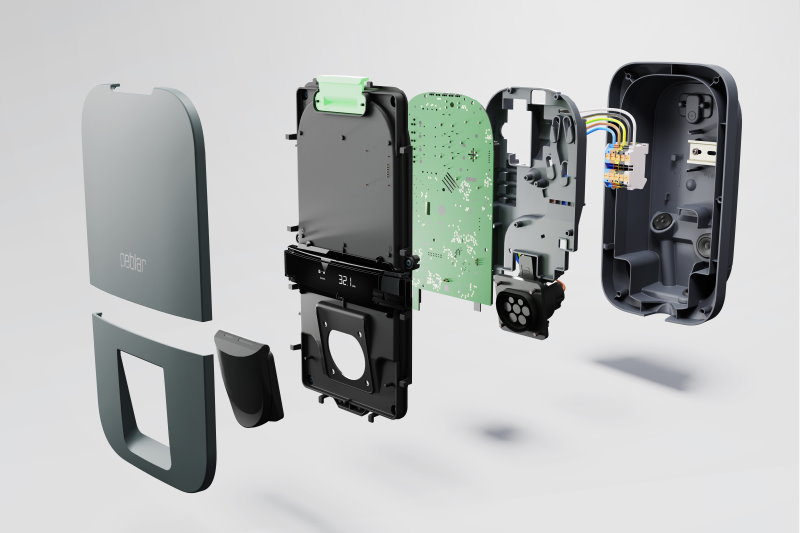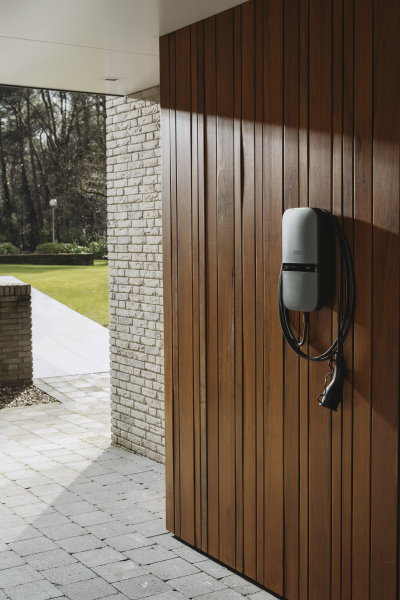
Prodrive launches Peblar brand of highly integrated chargers made in Son
Prodrive Technologies has set up a separate entity focusing on electric vehicle chargers. Peblar is dedicated to delivering robust yet affordable solutions for home, business, residential and fleet charging. Next to the so-called charge point operators and large-volume players, it explicitly targets the other parties in the value chain, like installers. Wholly owned and fully backed by Prodrive, the daughter company increases the flexibility required to operate in this emerging market.
“Developing products for industries like semicon and healthcare, Prodrive’s business model is typically B2B,” explains Erik Berens, Peblar’s commercial director. “However, the installer market primarily serves to B2C customers, specifically targeting private users. These individuals may be leasing a car or purchasing a second-hand electric vehicle and seeking a reliable and easy-to-use charging solution for their homes. Prodrive has established a separate entity to effectively address this segment, which operates at a rapid pace and demands a distinct approach to stay ahead of market trends.”
Full control
Peblar wants to stand out from the competition by design, from the outside as well as the inside. “Next to its aesthetic exterior, our entire system is integrated into one PCB,” says technical director Nilles Vrijsen. “Whereas other chargers have a separate energy meter connected via a DIN rail, ours is placed as one of the components on the board. This design means that we have to adhere to a higher standard, requiring us to certify the product as if it were an energy meter, but it also brings numerous advantages: there are no more complications with cables inside the box, the automated assembly process is streamlined and we achieve improved thermal performance.”

Likewise, the PCB accommodates all the communication functionality and power electronics. Vrijsen: “We support Ethernet, Wi-Fi, LTE 2G/4G and Narrowband IoT, all on the same board, effectively making it an IoT platform. Similar to other communication devices, our charger complies with the European Radio Equipment Directive for electrical safety, electromagnetic compatibility and interference immunity, among other requirements.”
Because of the integration, Peblar claims that it also offers superior thermal performance. “Many other chargers dial down their capacity when they heat up after extensive charging or exposure to the sun. Often, they also use components that have a maximum operating temperature below 70 degrees,” illustrates Vrijsen. “As we have full control over our component selection and placement, we can adjust the design to achieve optimal thermal performance, obviating the need to reduce the charging capacity.”
With its industrial design, Peblar boasts a competitive edge as well. “The back of our charger can be effortlessly mounted on a wall, and the front seamlessly clicks into place. This allows for quick installation, typically taking less than 30 minutes, making it possible to install multiple chargers a day,” Vrijsen asserts. Berens adds, “For our large-volume clients, we provide a white label with extensive customization options, including a tailor-made front cover. Furthermore, we offer the possibility of customizing the mechanics to transform the overall look and feel.”
IoT platform
Safety and security are other important focal points. “The EV charging market is growing fast, all over the world. More and more companies are looking to get involved,” notes Berens. “As a solid installed base is starting to form in the front-running countries, we’re unfortunately witnessing a rise in quality issues, leading to an alarming increase in accidents. Consequently, chargers are facing growing scrutiny from governments, installers and stakeholders across the value chain. Both hardware safety and software security are receiving heightened attention due to these emerging challenges.”
At Peblar, hardware safety is a top priority. “We’re aiming for automotive-grade quality. Our systems go through an extensive validation and certification program by an independent body. We’re one of the few suppliers of EV chargers with a European type examination certificate,” Vrijsen points out. “Many of the required EMC, thermal, shock and vibration tests we can already do ourselves, using Prodrive’s lab facilities.”
With an EV charger that’s pretty much an IoT platform, Peblar is also putting a lot of effort into software security. “Our chargers can communicate, either wired or wirelessly, with a back office, for example for monitoring and billing purposes. We use the same link to connect to the charger and remotely update the software or unlock new functionalities,” elaborates Vrijsen. “We make sure that our products are completely secure, compliant with the latest market standards.”

Sizable club
Peblar is initially targeting the Benelux region and the rest of Europe. That’s already quite challenging, as the European EV charging landscape is rather diverse. “There are a lot of country-specific regulations and requirements. After Brexit, for example, legislation in the UK has changed to match the particularities of the British electrical grid. In Germany, there’s more focus on security and also billing,” illustrates Vrijsen.
Luckily, with over 150,000 AC chargers manufactured and delivered across the continent, Prodrive already has a track record in the European EV charging landscape. “We started in 2016 with the development of a wireless charging system for a German carmaker,” recalls Vrijsen, who has been there for the whole ride. “This project led to a follow-up with the same customer, resulting in our first AC charger a year later.”
The Peblar team builds on this experience. “We have a growing dedicated team of currently 50 FTEs, supported by a large pool of Prodrive resources. So, we’re quite a sizable club already,” says Berens. Next to its testing labs, the mothership is also providing its highly automated manufacturing facilities in Son. Vrijsen: “We make our plastic encasings and assemble our products there, close to our primary market.”
Main picture credit: Peblar





